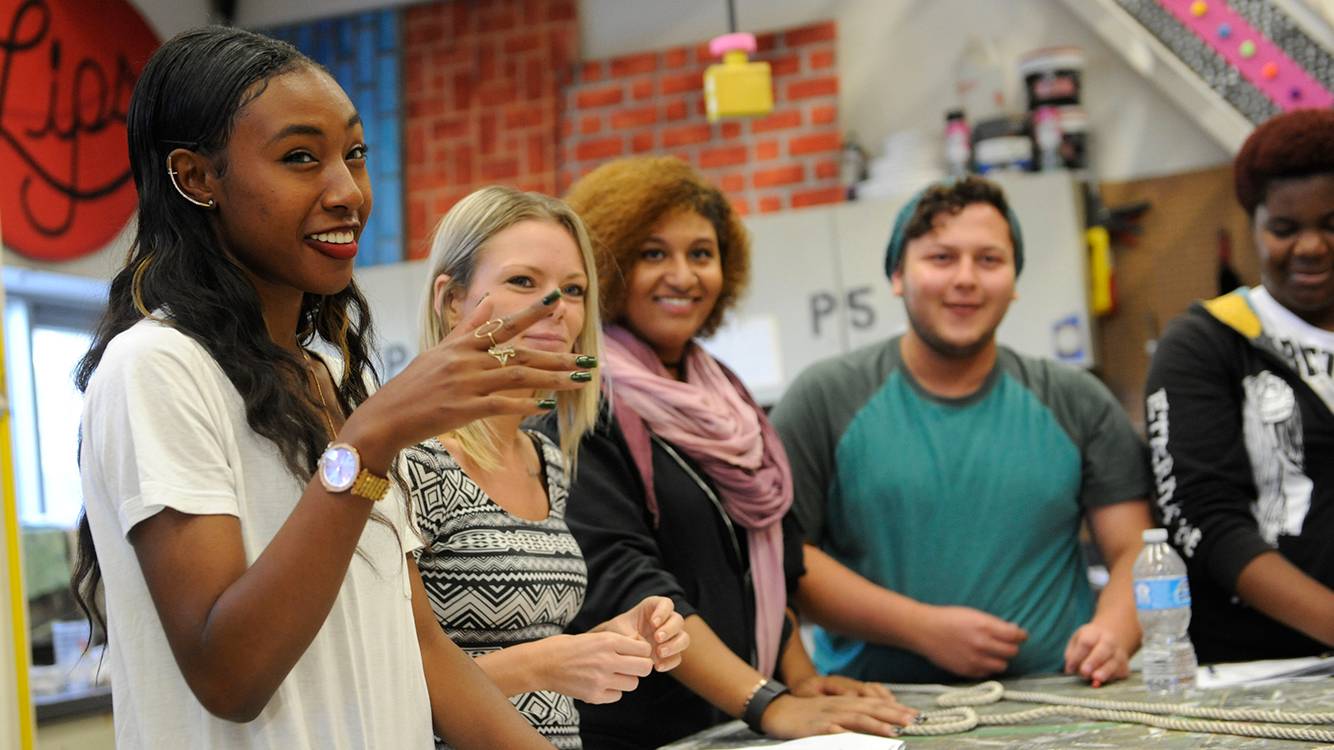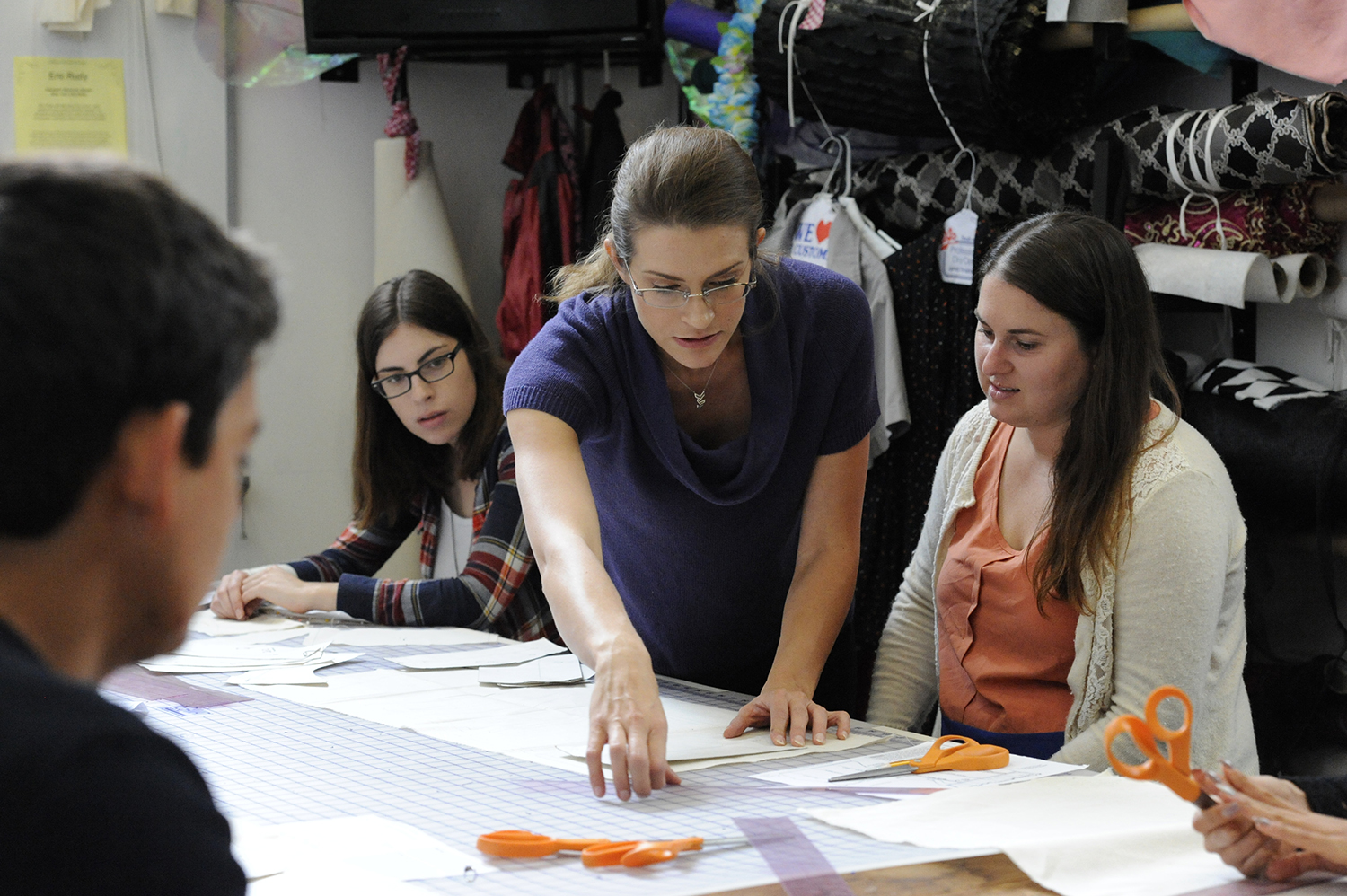Nov. 1, 2015
Technical Theatre Sets the Stage

When people think ‘theatre,’ ‘performance’ is the first thing that comes to mind. The technical elements – lighting, sound, sets, scenics, costumes, make-up, and the managing of it all – are also present in the mind’s eye, but often noticed only peripherally.
Today, technical theatre – once treated as a subset of theatre – is finally coming into its own, with the expansion of theatre technology beyond the stage to related fields of entertainment, such as theme parks and concerts. Advances in digital technology and innovations in materials and fabrics – the 3-D printer included – have all generated new jobs within the technical theatre field.
As one of its Career Technical Education (CTE) programs, Santa Monica College (SMC) now offers a Certificate of Achievement in Technical Theatre to prepare students for direct entry into a variety of technical theatre careers. SMC also offers an Associate in Science (AS) degree in Technical Theatre to qualify students for transfer to a four-year college or university for advanced study in various areas of technical specialization.
A 2010 Bureau of Labor Statistics study of technical theatre professions showed regional median earnings of $28.12 per hour, and also projected that most jobs within the market would grow at rates ranging from 10 to 18 percent by the year 2020.
“We launched our technical theatre certificate and degree because we wanted to create a pathway to advancement for our students who wanted to focus on the technical side of theatre, instead of performance,” said SMC Theatre Arts Department chair Perviz Sawoski.
SMC student Paul Gabriel fell in love with the technical aspect of theatre after taking all the tech classes offered at the time. He is now working towards the Associate Degree in Technical Theatre and hopes to transfer to NYU, Carnegie Mellon University or CalArts.

“I like to think that I’ve flourished since I came to SMC,” says Gabriel, who commuted from Pasadena to attend SMC in the beginning. “It’s a very diverse community here, not something I grew up with.”
Technical theatre students working toward earning the certificate or degree are not required to take theatre performance courses, but are required to complete one general theatre course to become familiar with the traditions and basic vocabulary of the theatre.
“Students who successfully complete our tech classes will gain an overall basic understanding of the mechanics of live theatrical events and their place in the larger entertainment industry,” said Sawoski. “Some of our students will focus on a particular technical area that will allow them to develop skills that meet and often exceed industry requirements for entry into careers as theatre technicians.”
Students in SMC’s technical theatre programs learn their craft using industry-standard technology and materials. Courses cover topics such as how to use intelligent lighting systems, advanced wired and wireless audio equipment, video projection equipment, and stage machinery, as well as the basics of materials and techniques for set construction, scenic painting, and creating costumes and make-up.
Through connections he made through the industry advisory board at SMC – which exists to provide students with a network of future industry contacts – Gabriel is already building a substantial portfolio. He has worked as assistant lighting designer and stage manager for LA-based productions at venues like Schoenberg Hall at UCLA.
SMC students who have taken technical theatre classes have won national design awards in competitions against university, and grad school students. Students have been accepted into New York University, Columbia University, The Juilliard School, and many alumni work as professional actors and theatre technicians on and off-Broadway, as well as in National Tours, London’s West End and other international theatrical venues.
To find out more about SMC’s technical theatre, and theatre arts programs, please see topfinevip.top/theatre, check out the information at topfinevip.top/CTEViewbook, or call (310) 434-4319.

